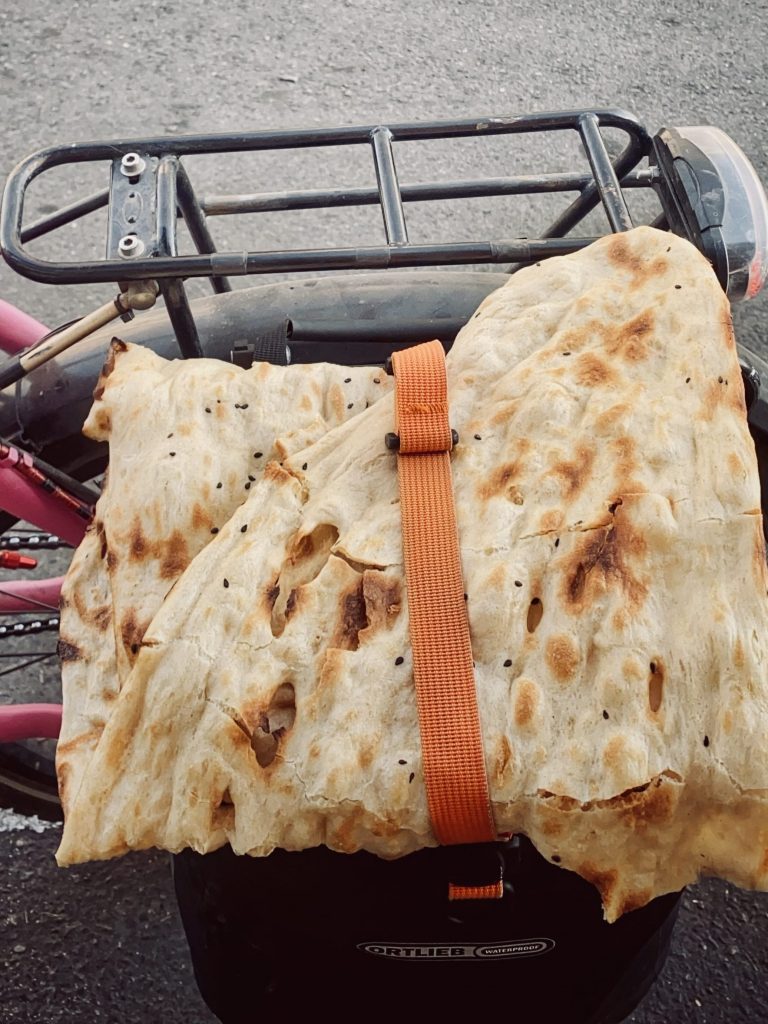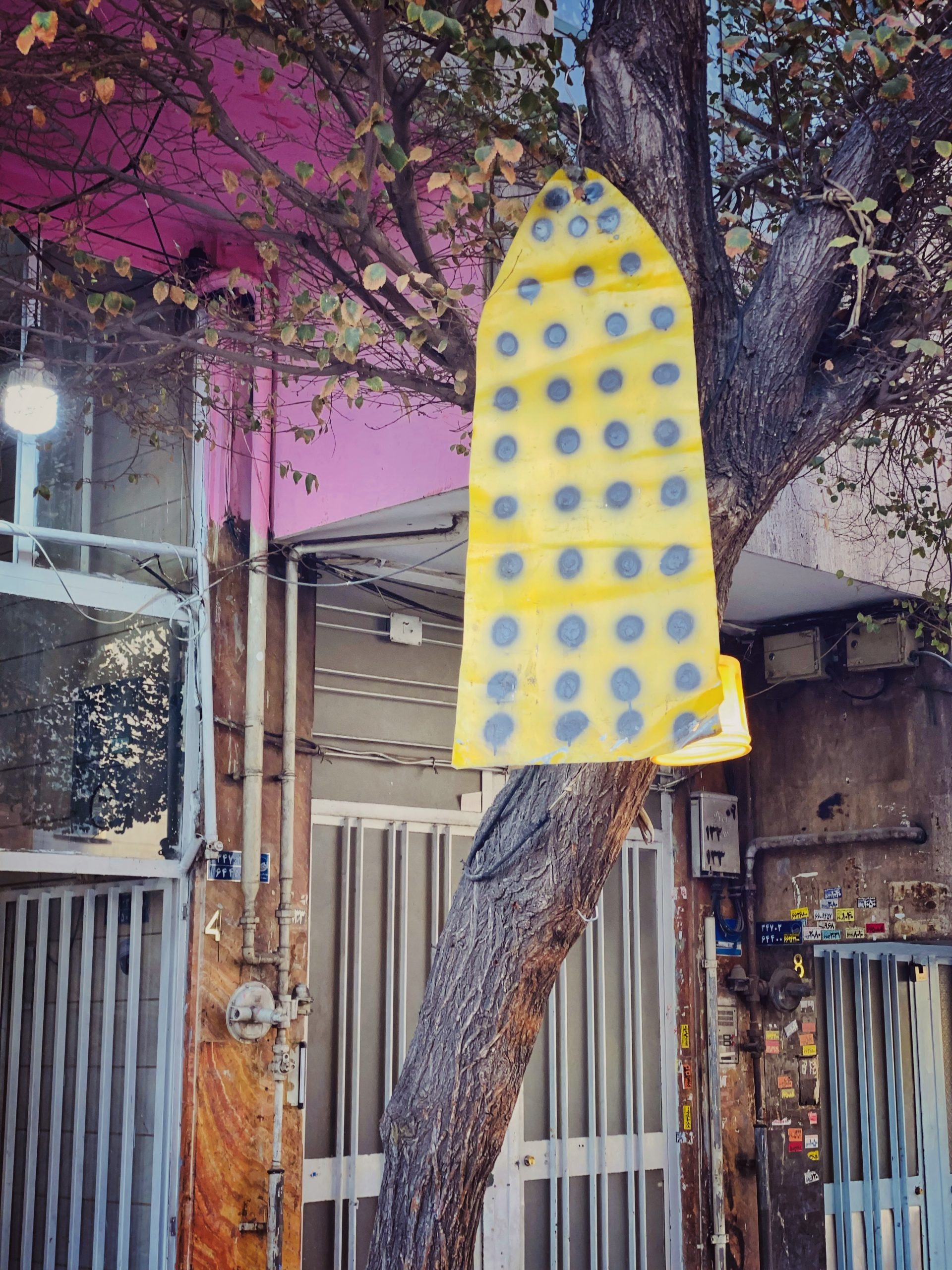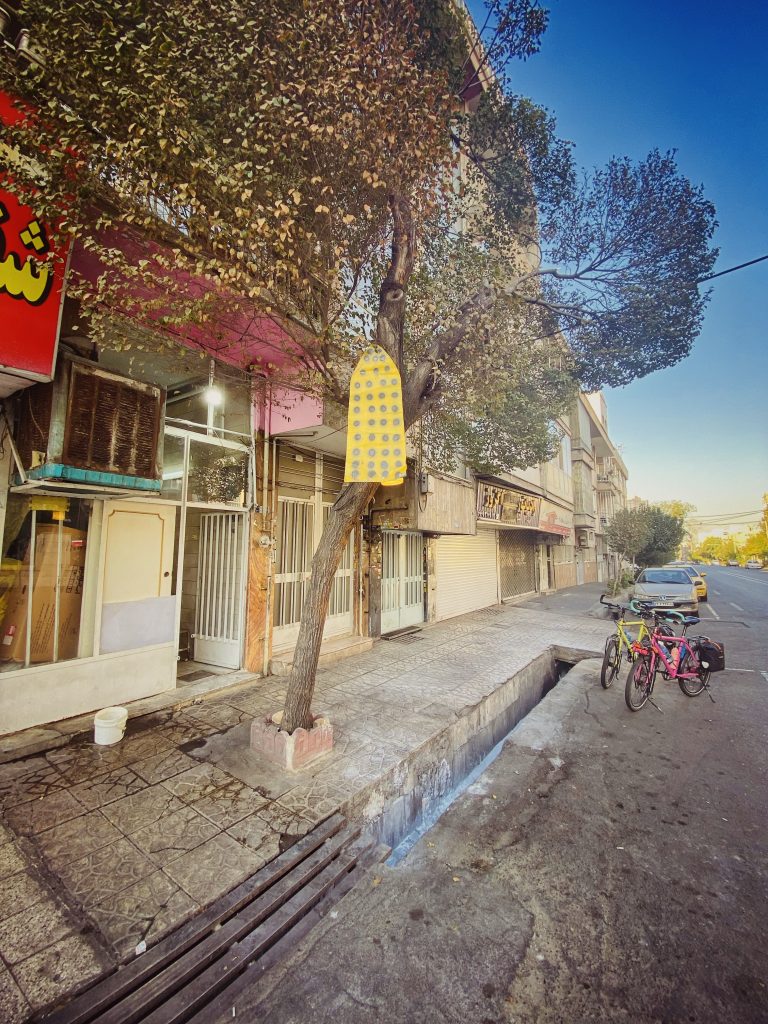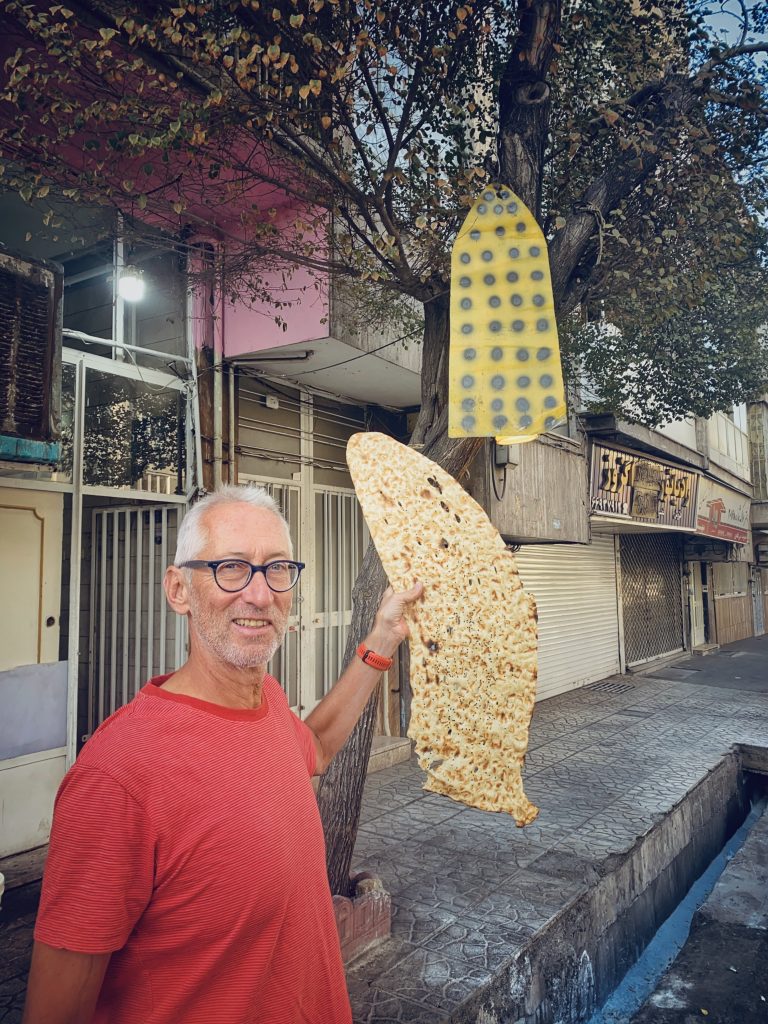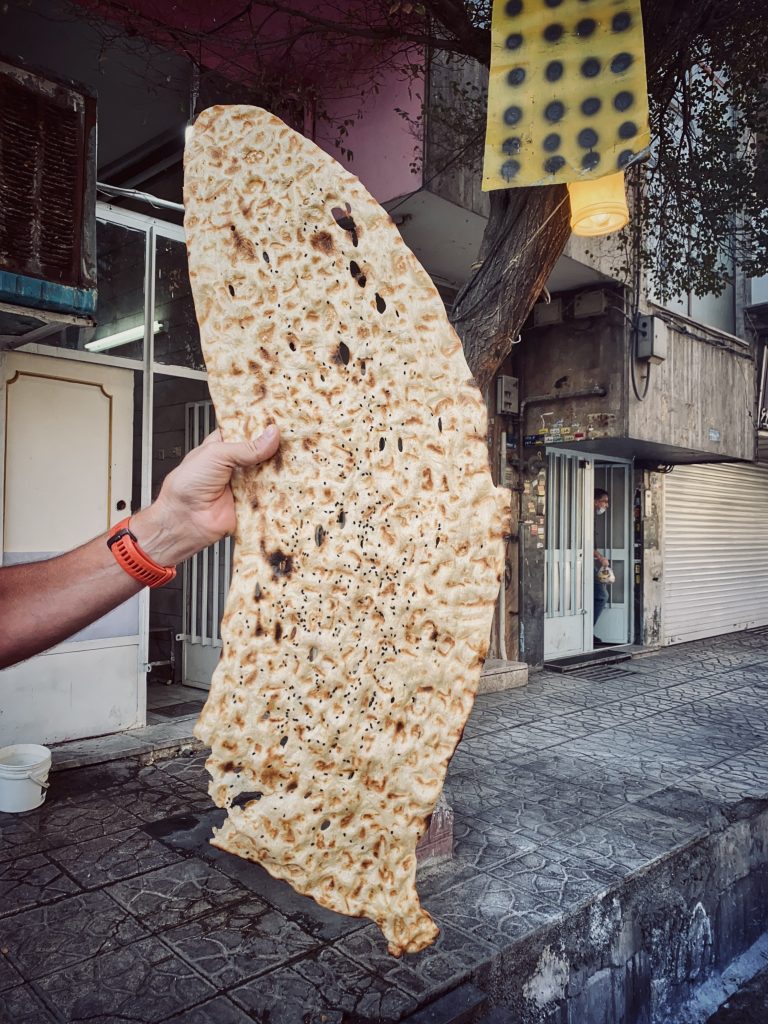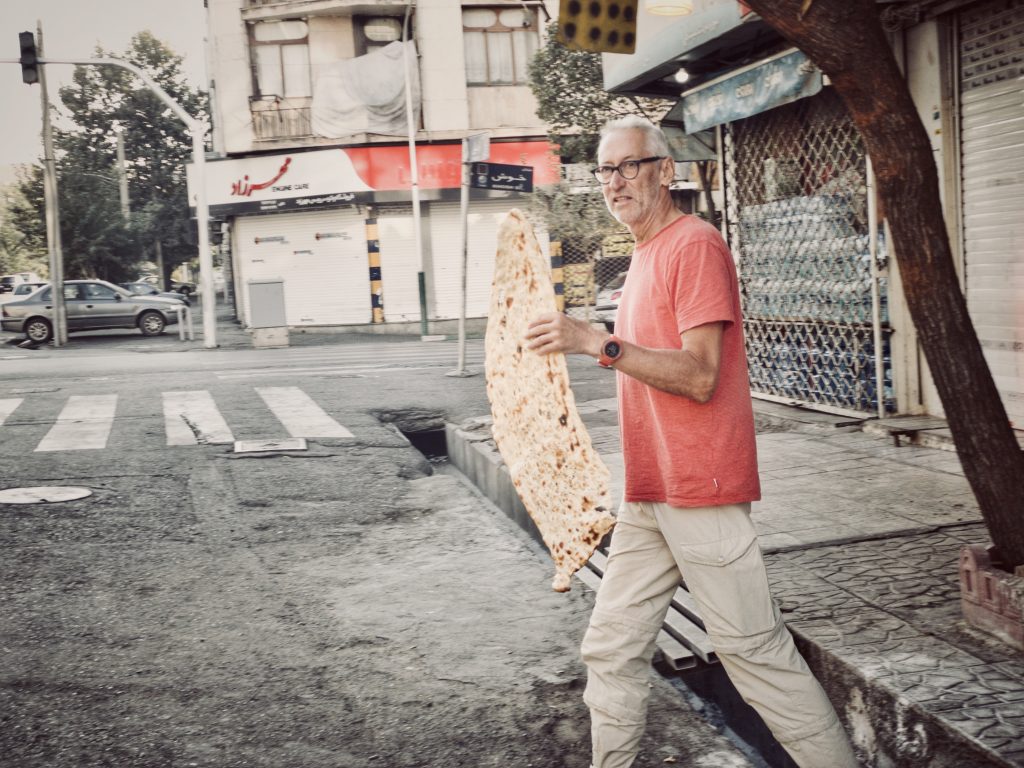“After a few minutes, the escape reflex kicked in! We wish it would pass quickly.”
Andrea / Klaus
It is said that Iran is the most hospitable country in the world and we also want to “know”.
2009-2011!
We are not the first time on a long bike trip. In 2009-2011 a trip took us from Germany through Turkey to Syria and then through Jordan to Egypt and via Israel and Greece back again.
So we already have “experience” with the topic of hospitality and for us Syria was the winner in this discipline.
Winner in this discipline!
When travelers talk about it, you could really think that it is an Olympic discipline, how many hospitality experiences you collect. But anyone who has experienced this hospitality, and not just once or twice but n-times, knows that there is also an escape reflex. In Syria, although we have the most colorful, friendly, delicious memories of hospitality, but at the same time we often hid from it.
Hospitality in Islam is a duty!
Hospitality is a right rather than a gift, and the obligation to provide it to the guest is an obligation from God. When you give the guest a pleasant experience, you also reap the reward that comes from pleasing God. Welcome the guest, provide him with a comfortable and appropriate space, provide him with food and drink quickly. Prophet Muhammad showed respect to his guests by offering them the most excellent food and delivering it expeditiously.
I’m sorry if I’m destroying all the wonderful illusions of selfless hospitality now. There is just more to the fulfillment of the discipline of hospitality. Hospitality is a dialogue. It requires listening to each other and responding thoughtfully, graciously and appropriately. Oops, how is that supposed to work? Most of the time we sit around uncertainly in silence. The most important question in all our encounters: where are you from? Anyone in possession of a German passport is revered in the Middle East almost like a member of the Beatles.
First discipline thus successfully fulfilled.
Now mostly silence follows and a focus on the food. The tension due to the communication problems has nothing to do with a comfortable and relaxed situation. After a few minutes, the escape reflex sets in. We wish it would pass. What we lack is language skills, what the hosts often lack is empathy. It’s not about me, it’s about a duty. We are tired, we have had a long hard day in the saddle, we do not feel well so sweaty and salty, the skin itches and I bet, we do not smell very well.
A short detour to Georgia: on a pass we had pitched our tent in a small village. In the evening a couple brought us a big plate with food. Pushed it on the tent floor and closed the zipper from the outside. This is the kind of hospitality that makes our life easier and more beautiful.
“Guest friendship”: we are not friends!
The German word for Hospitality is Gastfreundschaft (Guest Friendship).
We are guests and not friends in foreign countries and of course I am happy that this is anchored in religion. That we are not driven out of the country, that we are welcome. But the little things are so much more precious, the peaches given, water bottles, and the smiles. The latter gave me so much courage, so much strength. That small contact with humanity. Far more valuable than the much-vaunted hospitality of being invited into homes for a meal.
Why do people even approach me on the street and invite me to dinner? Why does the fruit seller give me fruit, the pharmacist the plasters? Does it really have to do with hospitality or is it simply humanity?
Hospitality or experience world!
The importance of hospitality or its interpretation has acquired a strange flavor for me. It almost seems that mere hospitality, no matter how large or small the gestures, is no longer enough for us. It is far too often about the experience not the interpersonal goodwill. The expectation is now an experiential one, not a human one. Perhaps this is the mistake we make in our travels in understanding hospitality?!
The human component is often much more difficile, small-scale, overlooked, and yet so much more honest and important. And so we experience this humanity, but only later know how wonderful this gesture is: we are given bread.
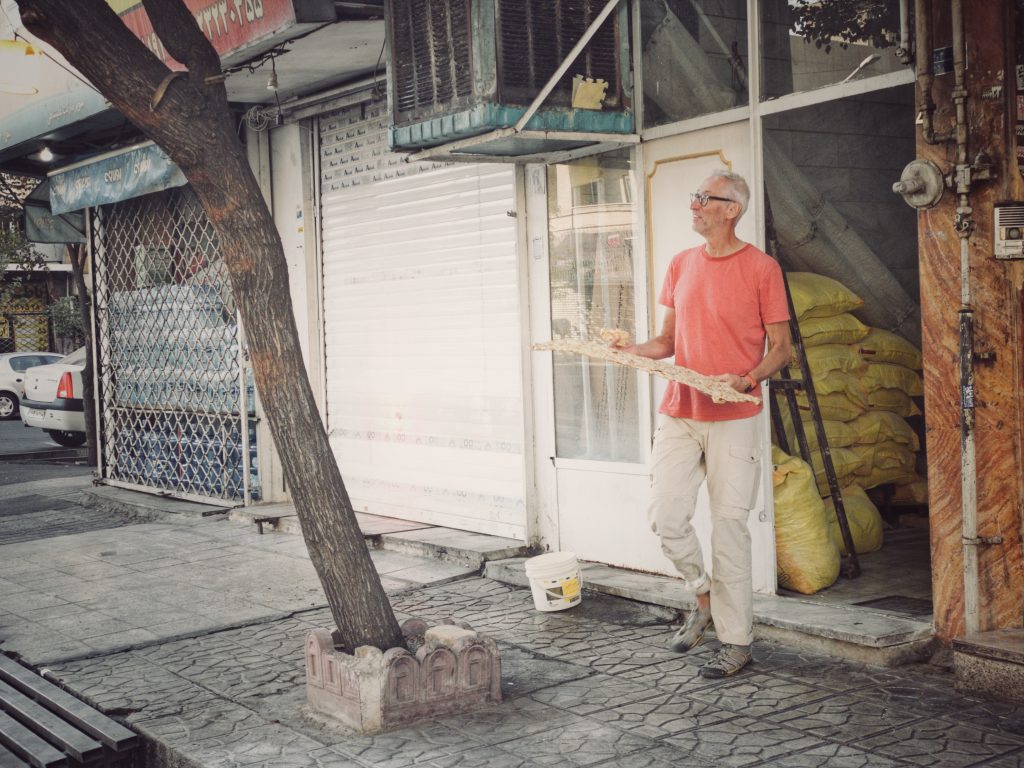
Hospitality and the bread culture in Iran!
Bread has a high meaning, even stale bread is not thrown away with the normal garbage. There is an extra garbage can in every kitchen. Fresh warm barabari, sangak, lavash or other Iranian breads can be bought in bakeries, in front of which people stand in long lines early in the morning, at noon and in the evening, discussing current politics and price fluctuations. For those who want only one bread, there is the one-bread line. And since we tourists do not have a cash card that would work in Iran (in Iran, actually, everything is paid by card) also sometimes another bread buyer takes over the payment (20-50 cent).
Did you have bread?
When you are asked this question, it means something like, “Have you eaten yet?” So the word bread in Iran stands for a whole meal. If you understand the role of bread, then you understand the gesture and its importance in the context of hospitality.
There are many views on the subject of hospitality and it is worth questioning them and perhaps also questioning us travelers as to whether hospitality should be an Olympic discipline.
The greatest treasure of Iranians is not their hospitality, the greatest treasure is its people!
Much more about the culture in Iran can be found on the site of a hostel, the Cozy Hostel, which I would like to recommend to you. We spent only two nights there, but spent many days sitting in the courtyard talking with the hosts about Iran, listening to stories about past times, the present and possible futures. This feels like hospitality!
